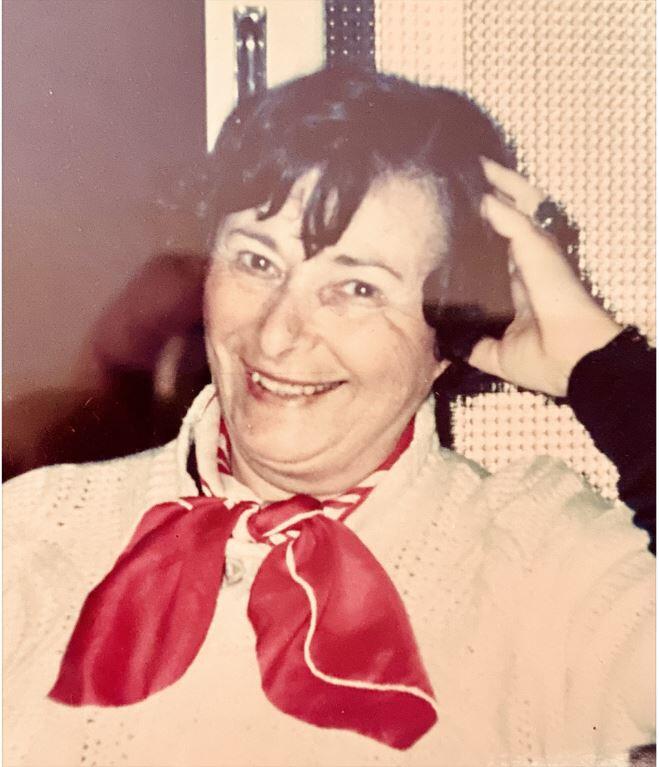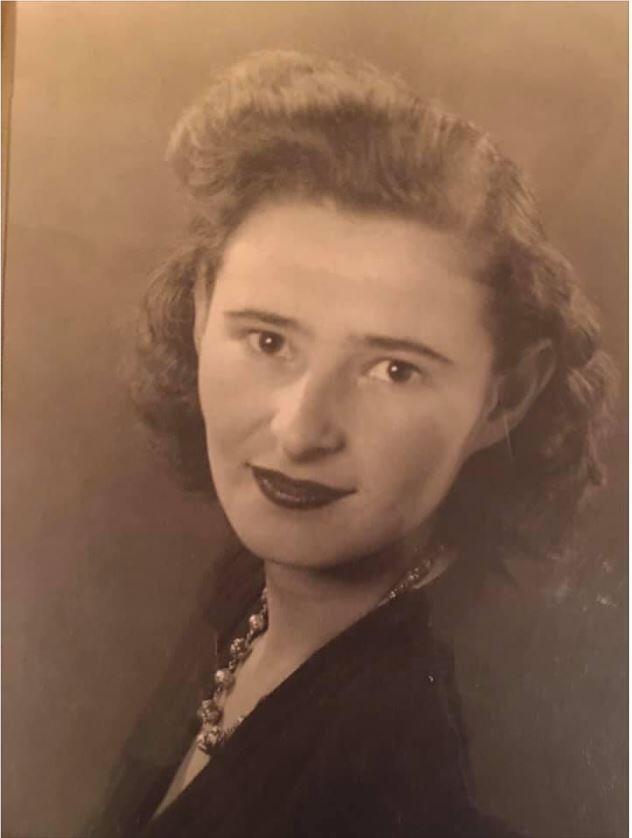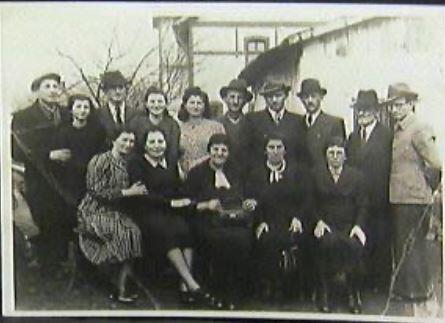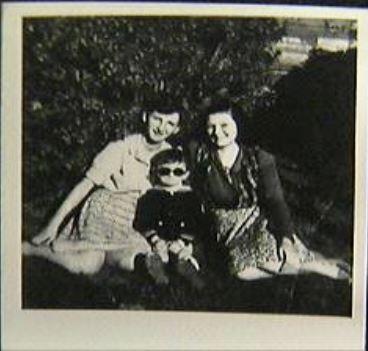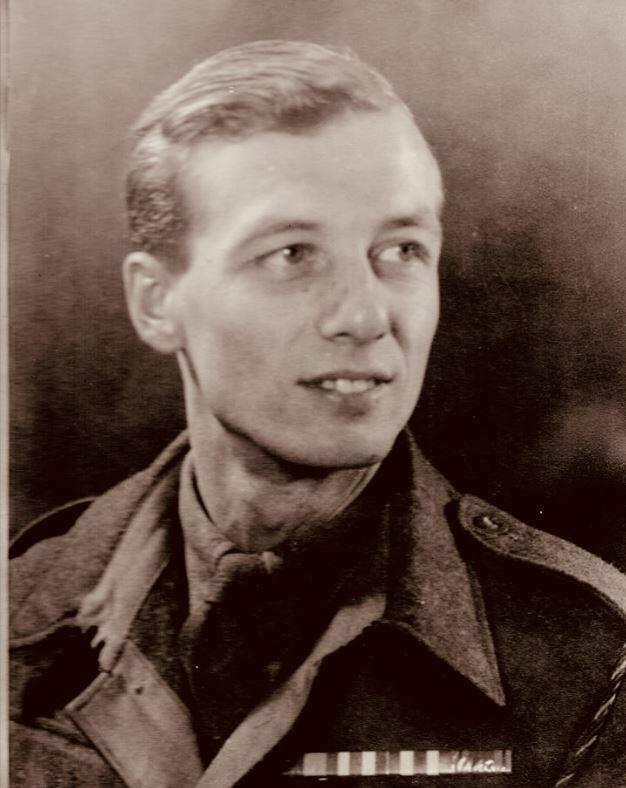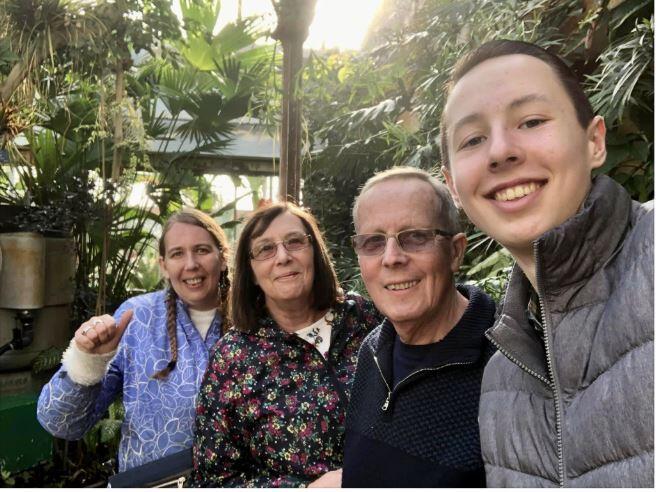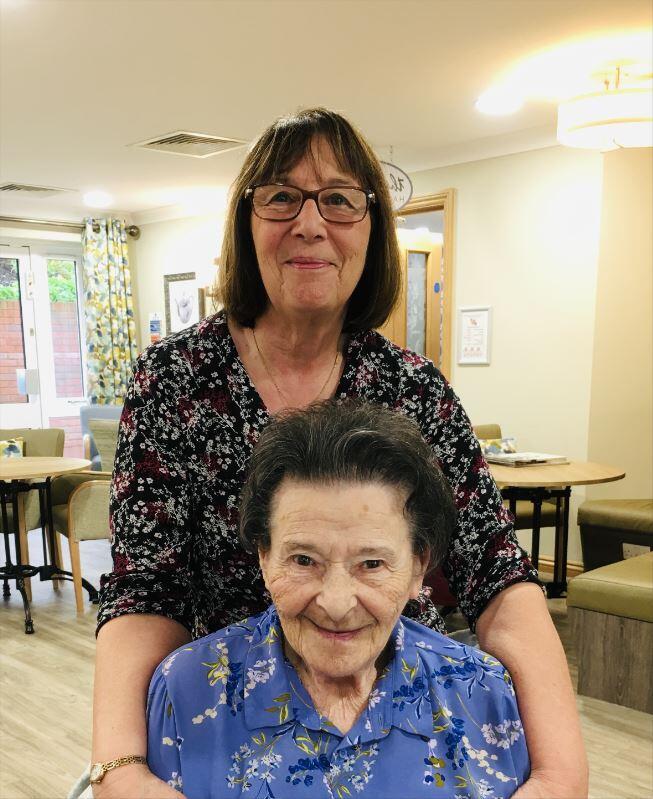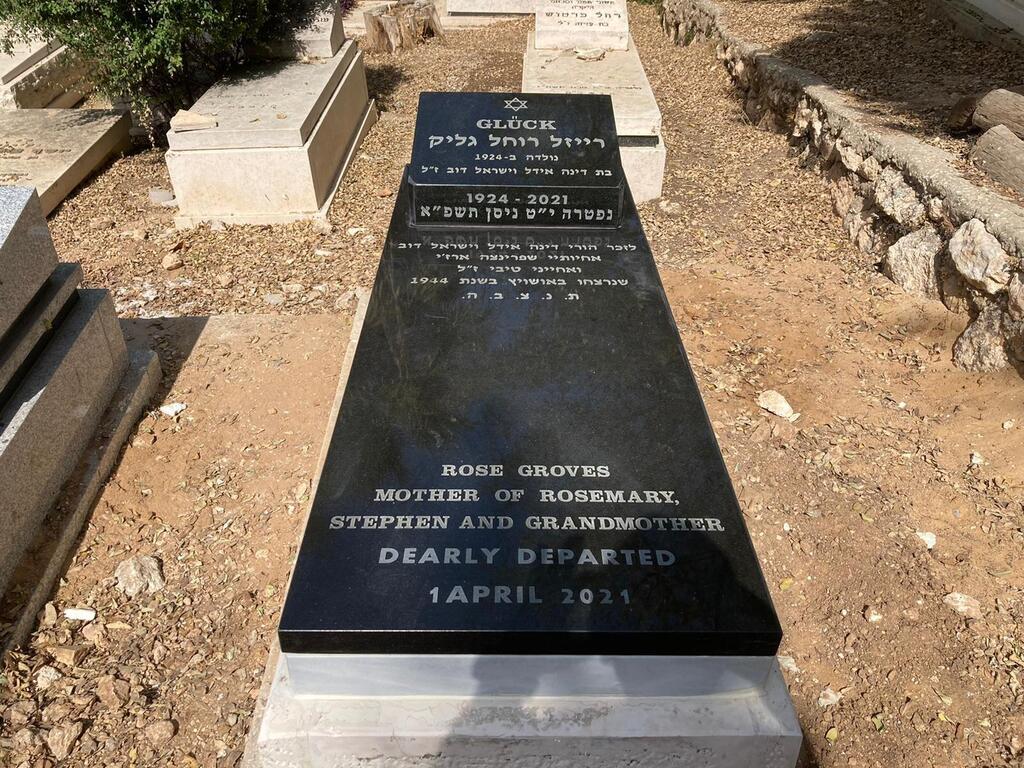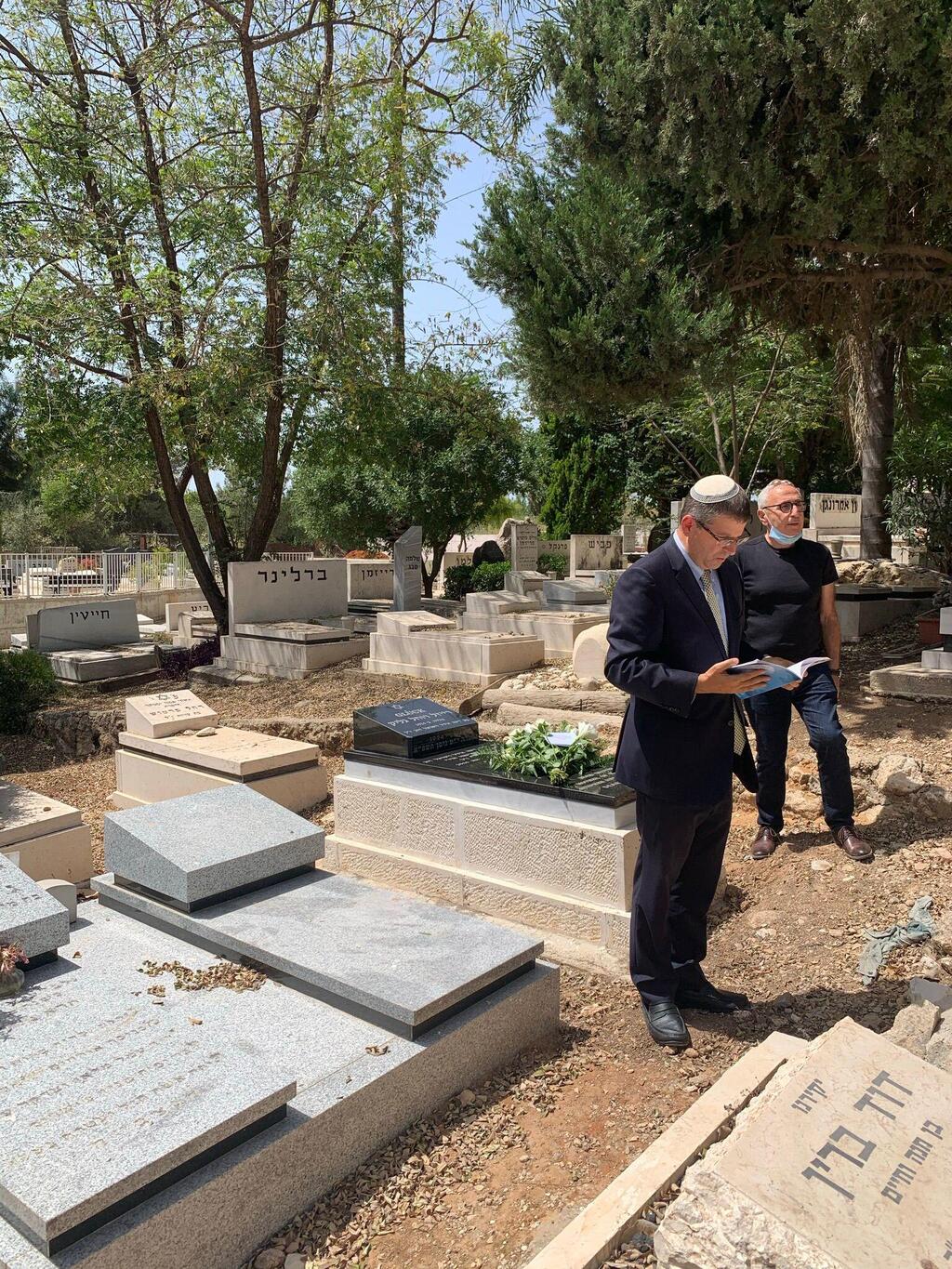Getting your Trinity Audio player ready...
Rabbi Seth Farber eulogizes Rose Groves, who chose to be buried in a Jewish burial in Israel, with her relatives watching via Zoom due to the COVID-19 restrictions
(Video: ITIM)
The funeral ceremony at the old cemetery near Modi'in was exceptional. Holocaust survivor Rose Groves was brought to her eternal resting place about two years ago without a close family member accompanying her.
Read more:
The COVID-19 pandemic had closed the skies and prevented them the opportunity to say goodbye. Her family members residing in Britain had to settle for a Zoom call, while Rabbi Seth Farber, co-founder of ITIM, a non-profit aiming to improve the way Israel regulates and administers matters of Jewish identity and Jewish life, eulogized and prayed for the ascension of the soul of the elderly English woman.
Born as Raisel Rachel to an Orthodox Jewish family, she survived the horrors of the Holocaust, married a Christian and chose to remain silent until she could no longer bear it.
Reisel Rachel was born in the city of Békéscsaba in Hungary on October 28, 1924, to Yisrael Dov and Dina-Idel Glück. Her father had a successful textile business, and in 1928, the family decided to immigrate to Oradea, near the border between Hungary and Romania.
The place had a large and prosperous Jewish community, referred to as Groisvarden in Yiddish. In fact, during that time, the town became a center for Jews after the Hasidic leader Rabbi Yisrael of Vizhnitz and his followers settled there during World War I.
Today, Oradea is located in Romania, but in 1940, the region was annexed to Hungary. The property of the Glücks and other Jews in the area was confiscated. They were forced to wear yellow badges and faced antisemitic abuse from neighbors who cursed them and threw stones at them.
Mengele's experiments
In the summer of 1941, the expulsion and murder of Jews who could not prove a Hungarian heritage began. In August of that year, many Jewish men, including Rose’s brothers Andor and Armin, were sent to forced labor camps in the region. This was done with the help of Hungarians collaborators.
On March 19, 1944, the Nazis invaded Hungary, and the Jews were deported to ghettos. Two months later, around 450,000 Hungarian Jews, including members of the Glück family, were deported to Auschwitz. Rose's parents, her sister Sarah (Szprinca), and her three-year-old nephew, Tivi (Tibor), Sarah's son, were sent directly to the gas chambers.
Rose and her sisters, Lily and Erzsebet, were taken to the cruel medical experiments conducted by Josef Mengele. Erzsebet, who was only 14 at the time, became extremely weak during the experiments and was sent to the crematorium. The Nazis transferred Rose to the Salzwedel labor camp in Germany, where she worked in a munitions factory.
11 View gallery
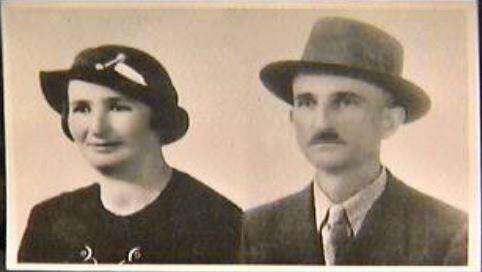

Rose's parents Yisrael Dov and Dina-Idel Glück, who were killed in Auschwitz
(Photo: Courtesy of the family)
Lily managed to survive until the end of the war and then returned to Oradea, where she met Arno, her brother-in-law who remained widowed after his son Tivi and his wife Sarah were murdered. With heavy hearts, Lily and Arno decided to marry each other.
Lily's brother, Andor, who was sent to slave labor by the Hungarians, survived and eventually immigrated to Israel. There he got married, but later migrated with his wife to Australia, where they lived near Arno, Lily and their children.
Armin, who was also conscripted into forced labor by the Hungarians, managed to escape. However, the Russians believed he was German and sent him to Siberia for two years. It was there that he met Ilona and married her. In 1961, the two successfully escaped from behind the Iron Curtain, leaving everything behind, and settled in Boston.
Alienation from the Jewish community
In May 1945, the Americans liberated the Salzwedel camp where Rose had been held. Shortly after, she met Sergeant John Groves, a member of the British 8th Army who had served in the displaced persons camps in the area. Despite the young woman's Orthodox upbringing and Sergeant Groves' Christian family background, love blossomed between them.
In May 1946, the two got married in Hanover, Germany. They then sailed to London, where they quickly became parents to two children, Rosemary and Stephen. In the British Library archives, there is a recorded excerpt of Rose from 1989, as part of a project documenting stories of Holocaust survivors. Rose told the interviewer that despite circumcising her son, her and her children’s connection to the Jewish community was limited. She expressed her sense of alienation from the local Jewish community and her determination that her children would never experience such a feeling.
Germans demanded proof of Jewishness
If the estrangement from the Jewish community and her roots weren't enough, her husband's health deteriorated due to tuberculosis he contracted during his military service, and he was discharged.
Rose testified that the sole reason for his release from the sanatorium where he had stayed for two years was her declining mental state, which required assistance.
John worked a part-time office job, while Rose also took on various temporary jobs - in a factory, a candy store and as a waitress. It didn't take long for her to realize that in order to survive financially, she had to apply for restitution from the Germans, but it required proof that she was a Jewish victim of the Nazis.
Rose says she wrote to her sister who was still living in Romania and brought witnesses, including a rabbi who knew her parents. She described the experience as “very distressing,” feeling she was being “interrogated like a criminal,” making old memories and traumas resurface.
11 View gallery
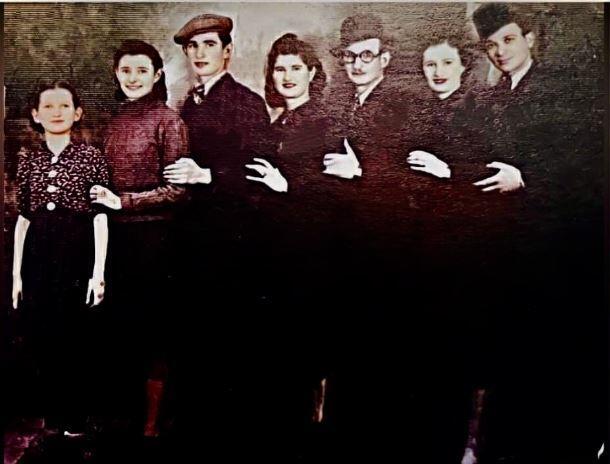

The Glücks before the Holocaust; From left to right: Erzsebet (murdered in Auschwitz), Rose, Andor, Lily, Armin, Sarah (murdered in Auschwitz with her son) and her husband Arno, who married Lily after the war
(Photo: Courtesy of the family)
In the recording, Rose tearfully speaks about the humiliation she experienced during that period when a representative from the welfare authorities arrived following reports of screams. Despite her denial and repeated explanations that she loved her children and her husband, he expressed concern over whether she was harming them. At that point, she felt her marriage to John was over.
Her daughter Rosemary, now in her 70s, says she understands why her parents’ marriage fell apart as they never really got along very well and were unable to raise their children. She says that she and her brother Stephen were primarily raised by their grandmother as their mother was simply unable to take of them.
Rosemary describes her mother as an incredibly intelligent woman who ran a successful gift boutique in London until her early retirement in 1972. Her father John Groves passed away from a heart attack in 1992.
Rosemary says that they were always aware of what their mother had experienced during the Holocaust. Those experiences would come back to haunt Rose throughout her life.
Her daughter describes how her mother would suffer from night terrors and would “wake up in hysteria after dreaming about piles of bodies in Auschwitz."
The refugees who changed her
Surprisingly, what helped Rose break free from the deep emotional crisis she was submerged in during those years was the Hungarian Uprising of 1956.
That year marked a popular revolt by Hungarian citizens against the suffocating grip of the Soviet Union. The Red Army violently suppressed the rebellion, and around 250,000 Hungarians fled the country. Some of them arrived in Britain, where a refugee camp was established not far from Rose's home. She rushed to the camp and offered her services as a translator.
Rosemary says that the experience had changed her mother. Though the refugees were not Jewish, she once again felt among her own people and met friends who helped allay her loneliness. She then began to travel the world.
Rose traveled to Australia, where she visited her brother. Later, she made several visits to Israel and discovered a number of distant relatives. Rosemary, who resides in Kent, southeast England, has three daughters and three grandchildren. A few years ago, she decided to undergo a DNA test to better understand her past. The test confirmed that she is 50% Jewish-European.
Rose's passing
In recent years, Rose's health deteriorated. She could no longer stand or walk, and she suffered from dementia. In 2019, she moved to a nursing home, not far from her daughter, who believes if it weren’t for COVID-19, she would still be with us.
Rosemary says that although her mother contracted the virus and managed to recover, she stopped eating and refused to take medications and they weren’t allowed to visit her due to pandemic restrictions.
Two years ago, during the Passover holiday, Reisel Rachel passed away at the age of 96. Family members recall that in 2006 she purchased a burial plot at the old cemetery in Modi'in and requested that her children bury her according to Jewish customs.
However, the skies in Israel were closed due to the pandemic, and the family contacted their cousins, Magda and Natan Rotem, who reached out to Rabbi Farber.
Farber says that his non-profit receives around 8,000 requests every year, but this was the first time they received a request of this kind, from a Holocaust survivor, from a Hasidic family who endured the horrors of Auschwitz.
Rosemary says that while her mother never spoke about her Jewish past, she never forgot where she came from, and her dream was to be buried in Israel.
Despite pandemic restrictions, the family did not give up and after many efforts, they managed to bring her body to her final resting place in Israel, with the family watching via Zoom.





